Drug drum
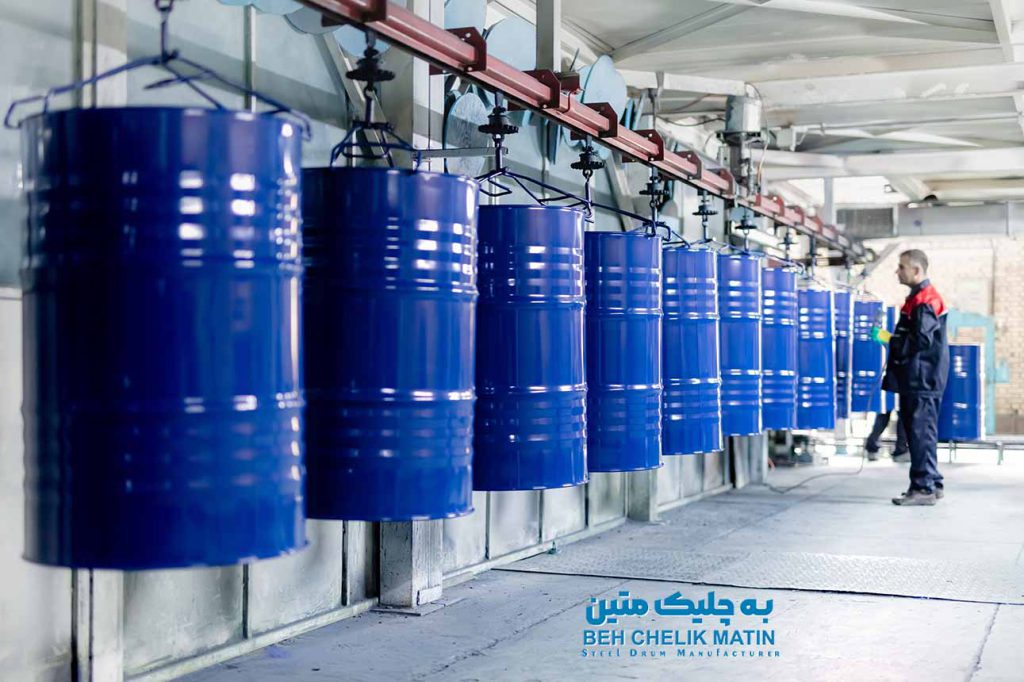
One of the applications of steel drums is for packaging drugs in the pharmaceutical industry. Their robust construction ensures the integrity and safety of contents during storage and transportation. These drums are often coated with a protective layer to prevent any potential reactions between the steel and the pharmaceutical materials. They create an excellent barrier against environmental factors such as moisture, light, and temperature fluctuations, which can preserve the quality of the drugs. Additionally, steel drums can be sealed to maintain sterility and prevent contamination. Their durability also allows for safe handling of hazardous materials, making them essential for ensuring that drugs reach consumers without any risk.
Specifications and standards
Get familiar with drums specifications and standards via Beh Chelik Matin company

Beh Chelik Matin standards
Global standards(15750)
National standard of Iran No. (2-15661)
ISO 9001:2015 certificate

Specification of Beh Chlik Matin steel drum
drum capacity according to the customer’s order, such as 230-liter and 220-liter drums
Drum color is selected according to customer’s order from the standard color catalog
The internal coating type is based on the customer’ order
The desired print on the body and lid of the drum
Electrostatic powder painting system
The competitive price in domestic and international markets
Required standards for manufacturing steel drug drums.
The production of steel drug drums is a critical process in the pharmaceutical and medical industries, requiring strict adherence to standards to ensure safety and efficacy. Steel drums used for drug storage and transportation must have high levels of precision, durability, and hygiene. In the Beh Chelik Matin drum manufacturing facility, comprehensive standards are followed for their production, focusing on material selection, manufacturing processes, quality control, and regulatory compliance. Each of these aspects is explained in detail below.


Material selection
Selecting the right materials for manufacturing steel drug drums is crucial. The primary material used is stainless steel due to its strength, corrosion resistance, and non-reactivity with pharmaceutical substances. Stainless steel grades such as 316 and 304 are common due to their excellent corrosion resistance and ease of sterilization.
Chemical composition: The material must have a specific chemical composition to ensure it does not react with stored drugs. This includes rigorous checks for alloy content to ensure stability and quality.
Mechanical properties: The steel sheets used must have high tensile strength and durability to withstand the stresses of storage and transportation without deforming or breaking.
Surface finish: A smooth, non-porous surface is essential to prevent contamination and facilitate cleaning.
Manufacturing processes for 220-liter drug drums
The production process for steel drug drums involves several precise and controlled steps, each requiring strict adherence to standards to ensure the final product meets all necessary specifications.
Forming and welding: The initial forming of the drum includes cutting, bending, and shaping the steel sheets, followed by welding. Welding must be performed to high standards to avoid weak points that could lead to leaks or contamination.
Heat treatment: After welding, drums often undergo heat treatment to relieve internal stresses and enhance mechanical properties. Appropriate heat treatment protocols must be followed to ensure uniformity and prevent material degradation.
Surface treatment: Electro-polishing or passivation treatments are used to enhance the corrosion resistance of the steel surface, ensuring a clean and inert surface suitable for medical use.
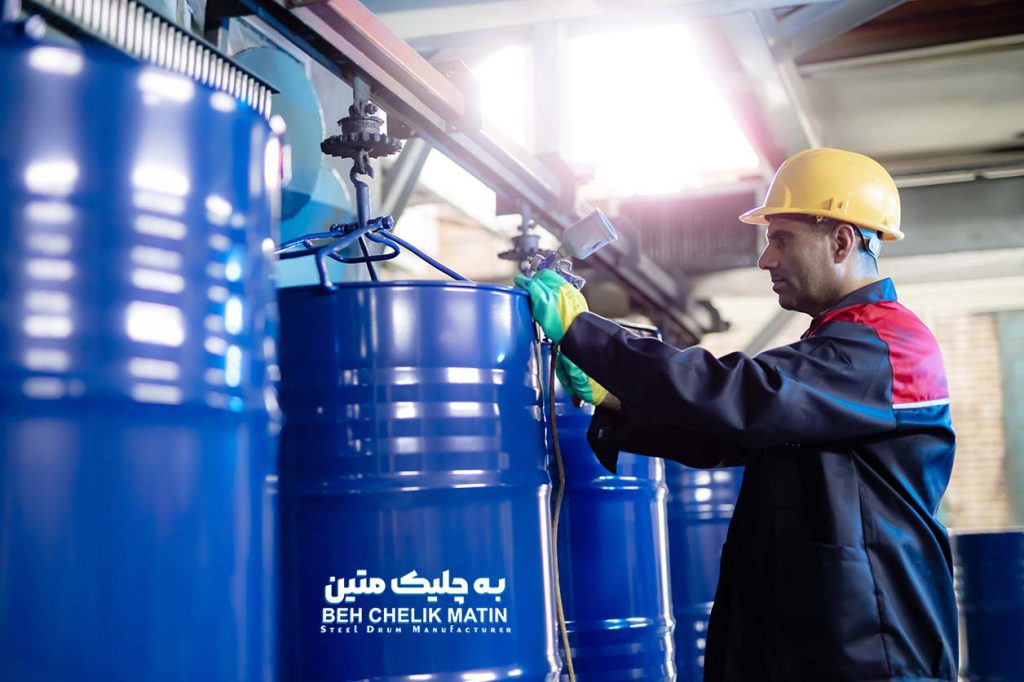
Testing and quality control of 220-liter drug drums
Quality control is critical in the production of steel drug drums. This process includes rigorous testing and inspection methods to confirm that each drum meets the required standards.
Dimensional accuracy: Precise measurements are taken to ensure that the drums conform to specified dimensions, tolerances, and capacities. Any deviations can affect compatibility with other equipment and containers.
Non-destructive testing (NDT): Techniques such as X-ray, ultrasonic testing, and dye penetrant inspection are used to detect any internal or surface defects that could compromise the integrity of the drum.
Pressure testing: Steel drums must undergo pressure testing to ensure they can withstand internal pressures encountered during use without leaking or bursting.
Internal cleanliness: The internal surfaces of the drums are tested for particulate contamination and microbial presence. This ensures they are sterile and safe for storing pharmaceuticals.
Regulatory compliance for 220-liter drug drums
Compliance with regulations is crucial in the production of steel drug drums and is controlled by various national and international standards to ensure safety and efficacy.
FDA regulations: In the United States, the Food and Drug Administration (FDA) provides guidelines for the materials and processes used in manufacturing medical containers. Compliance with FDA standards ensures that the drums are safe for use in pharmaceutical applications.
ISO standards: The International Organization for Standardization (ISO) provides standards such as ISO 9001 for quality management systems and ISO 13485 for medical devices. These standards ensure consistent quality and regulatory compliance in the manufacturing process.
GMP standards: Good Manufacturing Practice (GMP) standards cover all aspects of production from raw material procurement to final product inspection. GMP guidelines ensure that products are consistently produced and controlled to quality standards.
Documentation and traceability: Comprehensive documentation and traceability are critical aspects of the pharmaceutical steel drum manufacturing process. Every stage of the manufacturing process, from raw materials, must be traceable.
In summary, adherence to these standards ensures that pharmaceutical drums maintain the integrity, safety, and quality of drugs during storage and transportation, ultimately benefiting patients and public health.
Essential note
In the Beh Chelik Matin collection, the produced drums have international standard certifications, but the health certifications for food and pharmaceutical materials are the responsibility of the consumer. Many food producers use aseptic bags for this purpose.
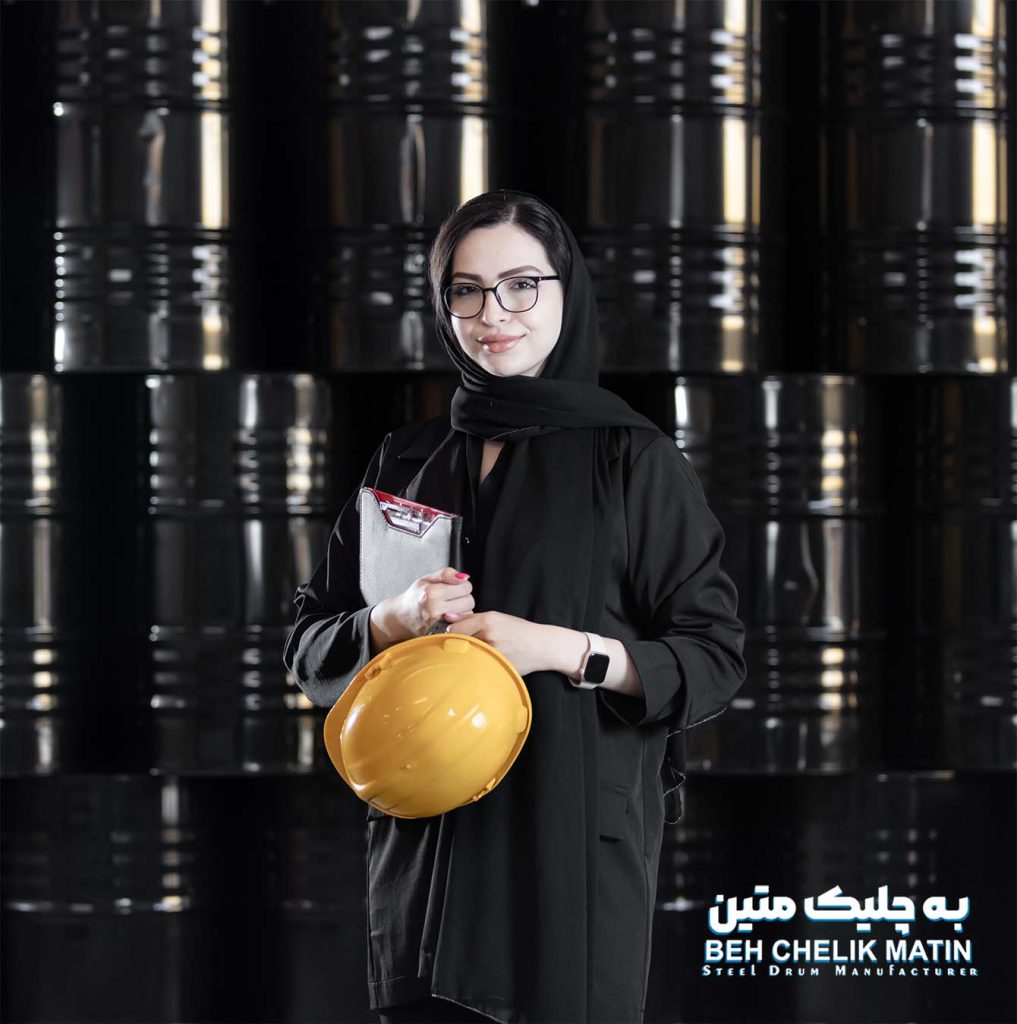
Products manufactured by Beh Chelik Matin Steel Drum Manufacturing.
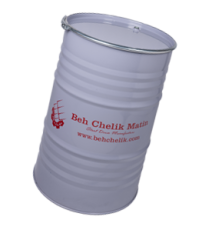
Open head steel drum
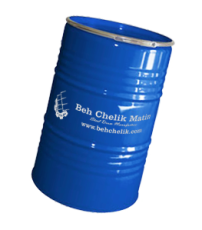
Neck-In Drum
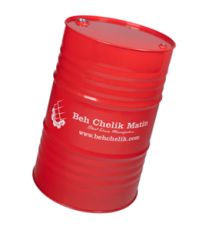
Tight head drum
Some industries related to steel drums
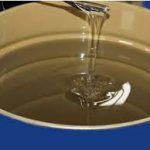
Adhesive and resin industry
Steel drums with closed doors are very suitable for packaging materials such as glue and resin due to their resistant structure and variety of sizes. These drums, which are made of high quality steel or plastic, can protect resin and glue against chemical and physical factors and prevent changes in the quality of the materials inside them.

Food industry
Steel drums play a vital role in the food industry. Their sturdy and versatile construction makes them ideal for storing and transporting a variety of food products. However, ensuring the safety and quality of food products stored in these drums requires compliance with strict standards and regulations.

One of the most important topics in lubricants that affects the quality, safety and longevity of the product is packaging. Steel drums are the preferred choice for packaging lubricants due to their strength and protective properties. To ensure optimal performance, a steel drum for lubricant packaging must have certain characteristics.

pharmaceutical industry
Drug drums are a vital component in the pharmaceutical packaging industry. Their robust construction ensures the integrity and safety of contents during storage and transportation. These drums are often covered with a protective coating to prevent any possible reaction between the metal and the drug.
Order registration
With more than a 20-year of experience, relying on its technical knowledge and expert staff, Beh Chelik Matin company has been able to manufacture high-quality steel drums to meet the needs of various industries. Compliance with all necessary standards to produce quality products is our main priority to meet all needs of customers. Respected customers can place an order by informing the sales experts about the weight or thickness of the drum sheet and the appearance specifications such as its color, required printing type and inner coating .
Share us
To get advise on the price of the drum and your desired features of your order from the Beh Chelik Matin collection ,contact the commercial team of the company.

